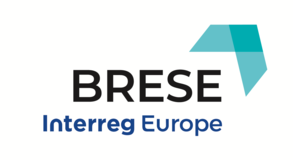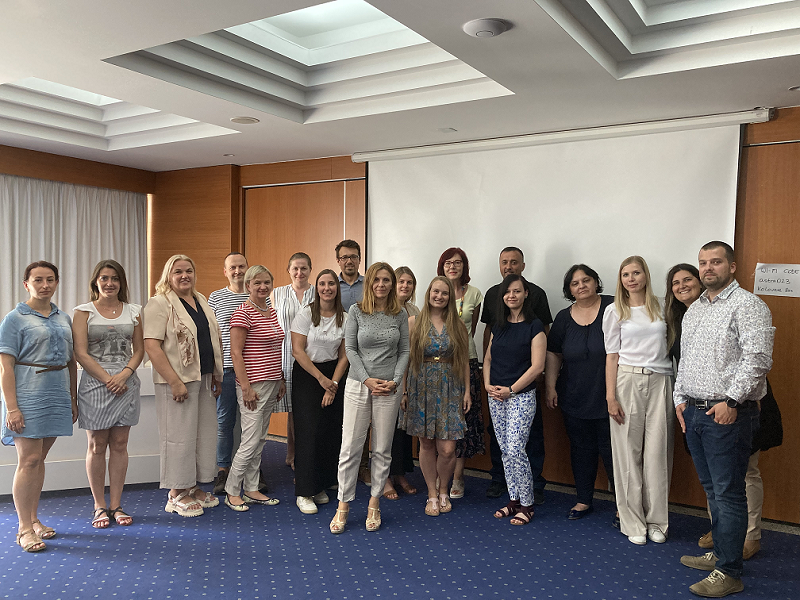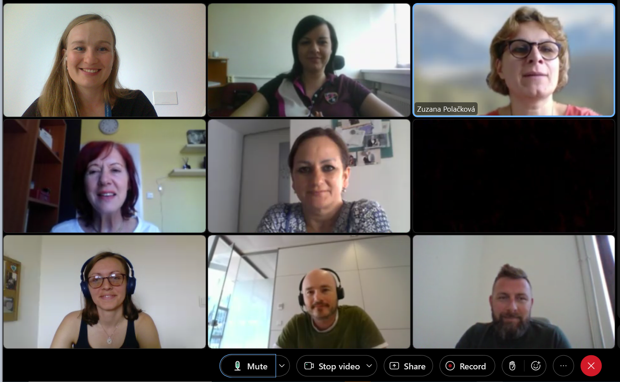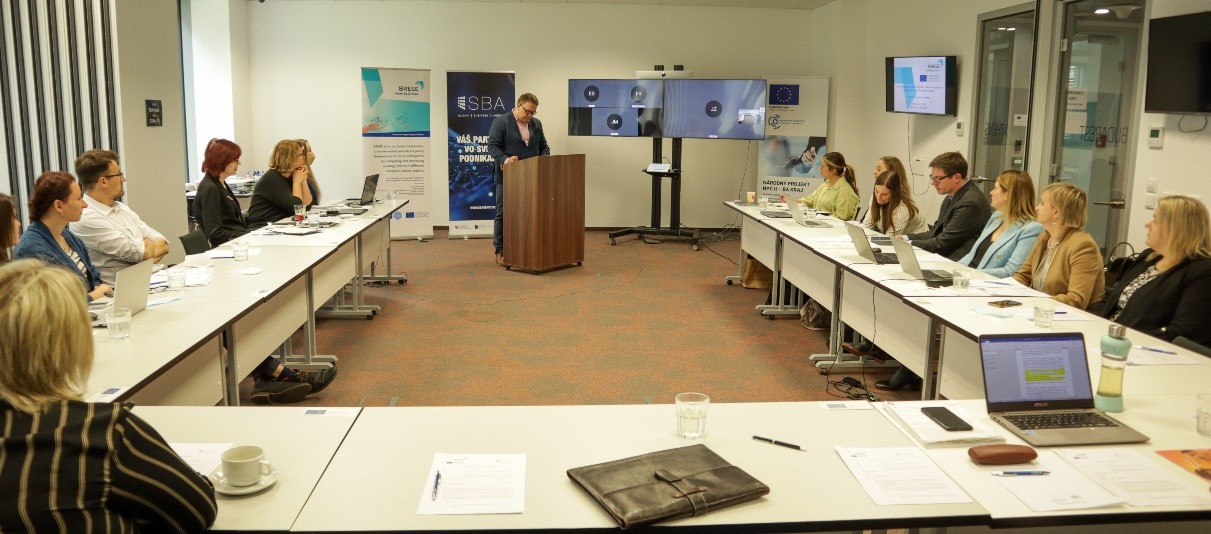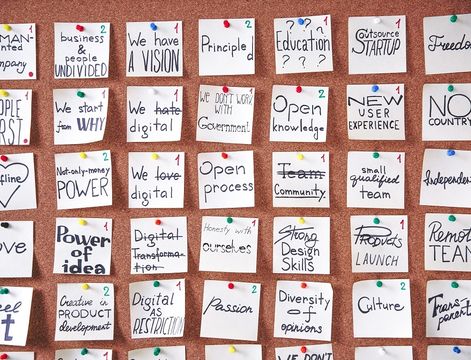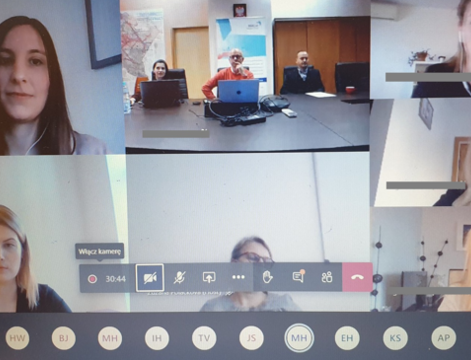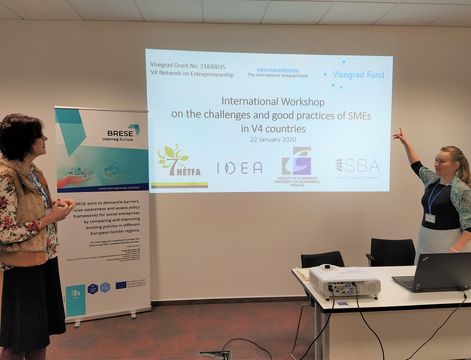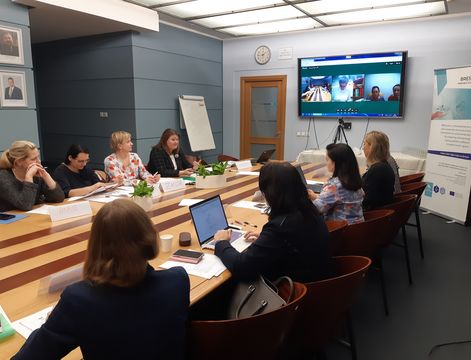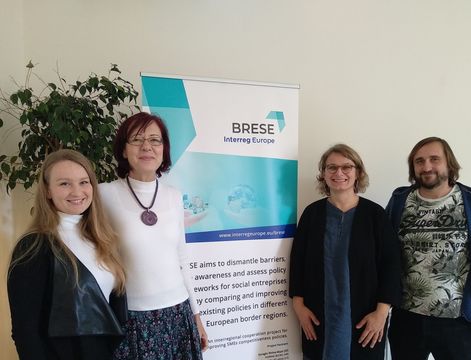On 30 and 31 March 2022, the project partners and stakeholders finally had the chance to meet in Bratislava after more than 2 years.
On the first day of the meeting included a number of interesting keynote speakers, as well as presentations of the project partners on the state of play of project implementation and action planning in their regions. The meeting was opened by Jarmila Dubrovayová, project manager representing Slovak Business Agency, who warmly welcomed the participants from the European partner regions. She underlined the added value of face to face meeting after more than 2 years for all partners and stakeholders.
Boris Sloboda, General Director of the EU Funds-Department of the Slovak Ministry of the Labour, Social Affairs and Family, also welcomed the attendees and presented the general situation of social enterprises in Slovakia, mainly how the Ministry will support them in the new Programme Period 2021-2027. According to Mr Sloboda, the Ministry would continue the support social enterprises through the ESIF Funds. Following the results of the Institute of Social Economy, a national initiative of the Ministry of Labour, Social Affairs and Family, and its 8 regional centres across all of Slovakia, advisory activities will be provided, as for example to help for the founding of new social enterprises or to support existing social enterprises in scaling up. Additionally, more funding opportunities will be created and legislative issues will be solved.
Peter Mészároš, key expert of the Institute of the Social Economy and one of the co-creators of the Act of Social Economy and Social Enterprises, presented the Institute of the Social Economy. It is a national initiative of the Ministry of Labour, Social Affairs and Family and supports the implementation of the social economy in Slovakia according to the Act. They follow a three-pillar-approach: 1. Legislation, 2. Advisory/counsel infrastructure, 3. Support infrastructure (financial and non-financial support).
Following the presentations of government representatives, Janka Žišková, from PONTIS Foundation, presented Social Innovation in the new Programme period 2021 – 2027. Compared to other EU member states, social innovation is still an unknown topic in Slovakia and support for the social innovation ecosystem is weak and non-systematic. A national strategy for the promotion of innovations does not exist in Slovakia. “What we need is: a clear definition of the term social innovations, a specific project selection mechanism, mechanisms for finding innovative projects, measurable indicators, to create specific types of financial support, capacity building & education of actors in the field of social innovations.”, said Janka Žišková.
Last but not least, Milan Vaňo, representative of the Banská Bystrica self-governing region, which is one of the most developed region in relation to the support of social entrepreneurship, presented the situation of social enterprises in this region. One unique approach of the Banská Bystrica self-governing is that they include social enterprises in public procurement procedures.
On day 2 of the meeting, the project partners and stakeholders started the day with a study visit at AfB. AfB is Europe´s largest nonprofit IT company and refurbisher that gives used hardware of its business partners a second live, and, in doing so, employing people with disabilities.”Used hardware creates jobs" – is a slogan of social enterprise AfB established in Germany, which currently operates in five European countries. Currently, the cooperate with approximately 1000 business partners, such as Deutsche Telekom and Siemens, from whom AfB collects around 472 000 pieces of used hardware per year.
For the second study visit, the consortium visited Bivio, a restaurant and three start hotel that employs people with disabilities. The organization runs a hotel in Rača, a restaurant with the capacity for 40 guests, as well as a laundry service for corporate partners. The project partners and stakeholders got to enjoy the tasty lunch at Bivio restaurant (definitely a recommendation!).
For the final study visit of the day, the group visited foundation Cvernovka. Foundation Cvernovka is a cultural centre located in a former secondary school building. The class rooms have been turned into artistic ateliers, workshops and social projects. It provides creative space for different cultural and artistic initatives and stimulates cooperation and exchange of ideas. The centre is a joint venture of the foundation and municipality.
The first physical interregional meeting of the BRESE project was a highly fruitful event. It underlined the added value of physical meetings for interregional learning and further solidified the great cooperation of the project partners. The BRESE partners thank the Slovak Business Agency for the great organisation and hopitality in Bratislava!
Check out our social media for more info and photos!
